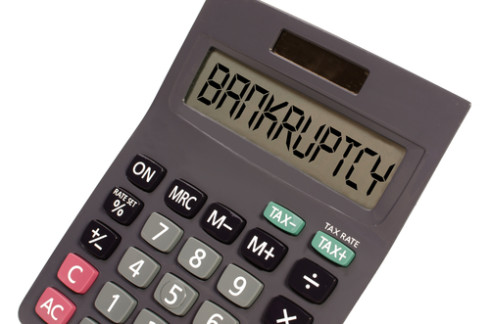Liquidation vs. Bankruptcy – What’s The Difference?
While the words bankruptcy and liquidation are often used interchangeably, they are actually two different occurrences. Because they are both so frequently associated with business failure, it is easy to see why one may think they are the same thing. The truth of the matter, however, is that they are not interchangeable and they both serve two very different purposes.
It is important to know the difference as a business owner because if the day ever comes where the business begins to fail, you’ll need to know what your options are. Knowing that you can declare bankruptcy without necessarily having to liquidate, or that you can liquidate without having declared bankruptcy, can help you to make informed decisions regarding the future of your business.
Bankruptcy
Insolvency, another word for bankruptcy, occurs when an individual or a business accumulates so much debt that they are unable to repay their creditors.
- Bankruptcy is often a last resort after every effort has been made to work with a debt counselor and creditors to pay off all or part of the debt.
 Bankruptcy can be voluntary or court ordered.
Bankruptcy can be voluntary or court ordered.- In order to declare bankruptcy an individual or business must legally file and apply to court.
- Certain criteria must be met in order to qualify for bankruptcy.
- One of the stipulations of a business bankruptcy may be to liquidate company assets in order to repay part or all of its debt.
Liquidation
Liquidation is the dissolution of a company’s assets. The sale of these assets may occur as a result of several different scenarios.
 Liquidation of a business’s assets may occur as a result of voluntary or court ordered bankruptcy proceedings. In these cases the money from the sale will go towards paying off part or all of the company’s debt.
Liquidation of a business’s assets may occur as a result of voluntary or court ordered bankruptcy proceedings. In these cases the money from the sale will go towards paying off part or all of the company’s debt.- Liquidation may also result from the decision of a company’s owners or trustees to end the business and dissolve its assets.
- Where a business or individual may work with a bankruptcy attorney for their filing, a business in liquidation may work with a team of lawyers and a professional liquidation company like Ideal Trading.
- Liquidation services can also include sale of excess inventory and estate sales and may not necessarily be part of a bankruptcy or other legal proceeding.
The important difference here is that while liquidation is oftentimes the result of bankruptcy proceedings, it is not necessarily a mandatory part of the filing and liquidation services can even be utilized for events not relating to insolvency.
For more information on bankruptcy, liquidation, and the liquidation services offered by Ideal Trading, please visit our website here. Or to contact us please fill out the Quick Contact form to the left hand side of your screen.
